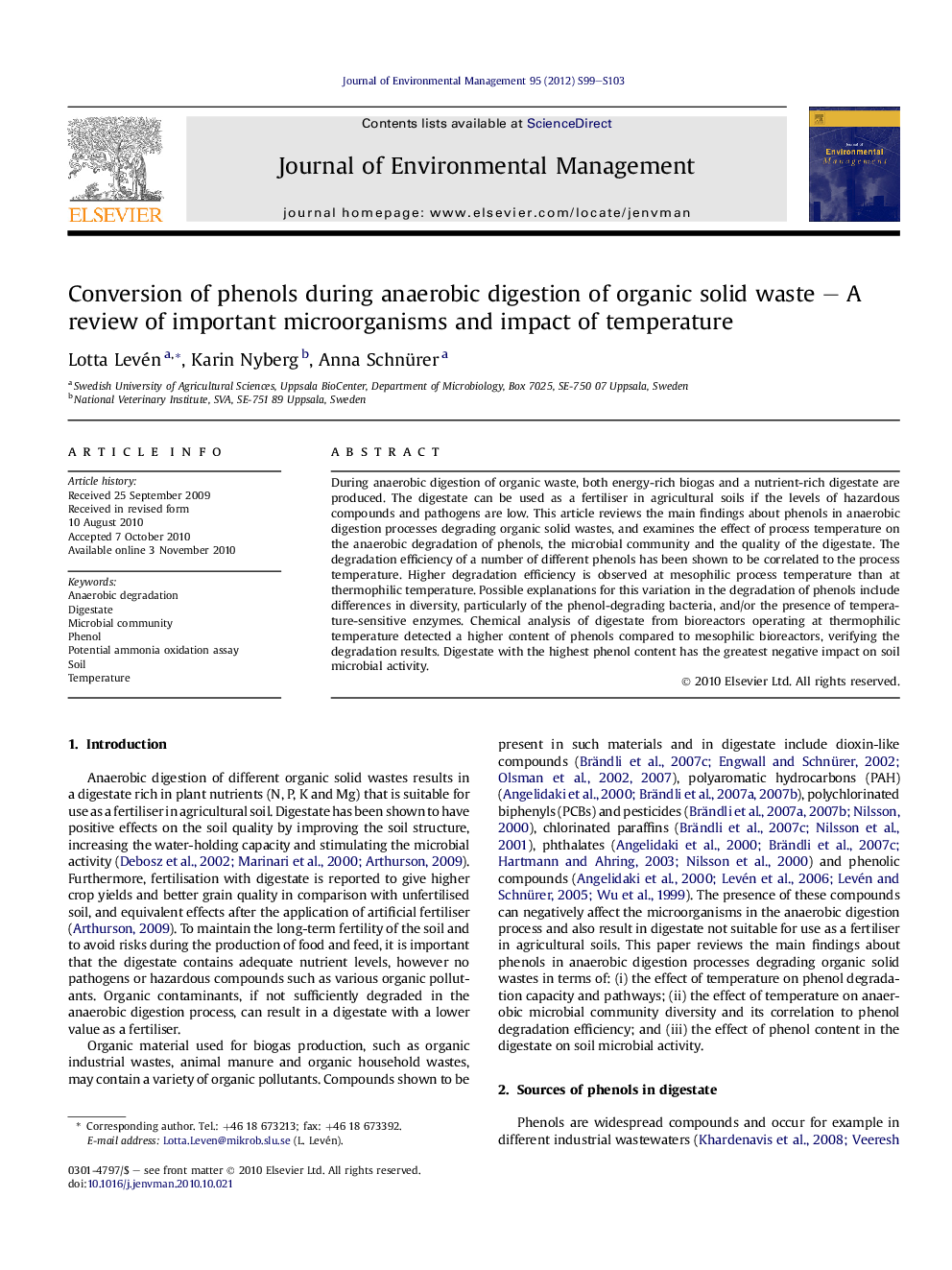| کد مقاله | کد نشریه | سال انتشار | مقاله انگلیسی | نسخه تمام متن |
|---|---|---|---|---|
| 1057035 | 947058 | 2012 | 5 صفحه PDF | دانلود رایگان |

During anaerobic digestion of organic waste, both energy-rich biogas and a nutrient-rich digestate are produced. The digestate can be used as a fertiliser in agricultural soils if the levels of hazardous compounds and pathogens are low. This article reviews the main findings about phenols in anaerobic digestion processes degrading organic solid wastes, and examines the effect of process temperature on the anaerobic degradation of phenols, the microbial community and the quality of the digestate. The degradation efficiency of a number of different phenols has been shown to be correlated to the process temperature. Higher degradation efficiency is observed at mesophilic process temperature than at thermophilic temperature. Possible explanations for this variation in the degradation of phenols include differences in diversity, particularly of the phenol-degrading bacteria, and/or the presence of temperature-sensitive enzymes. Chemical analysis of digestate from bioreactors operating at thermophilic temperature detected a higher content of phenols compared to mesophilic bioreactors, verifying the degradation results. Digestate with the highest phenol content has the greatest negative impact on soil microbial activity.
Journal: Journal of Environmental Management - Volume 95, Supplement, March 2012, Pages S99–S103